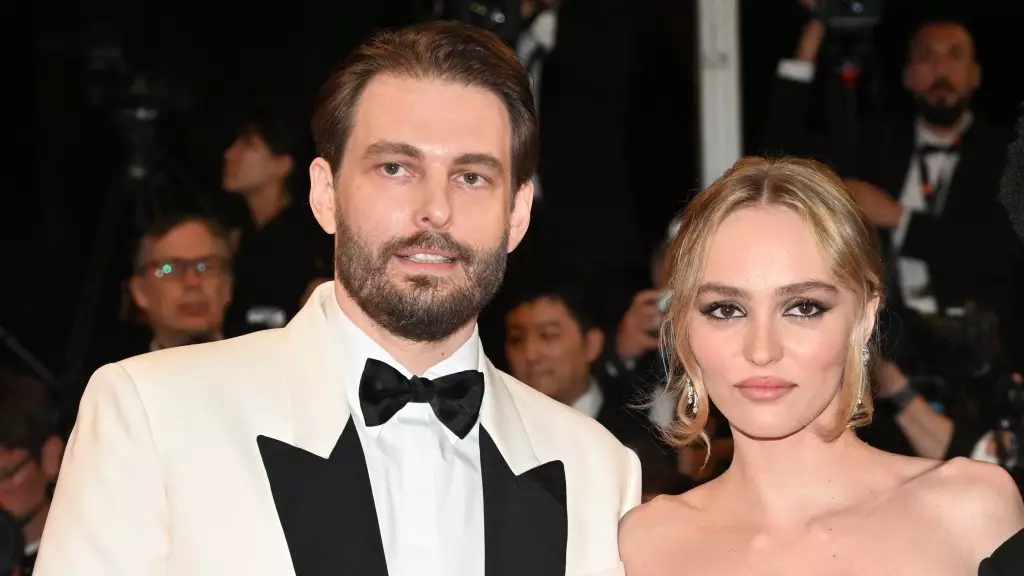In the realm of entertainment, controversies often serve as the backdrop against which artists create and thrive. One such instance is the recent conversation surrounding HBO’s “The Idol,” a show that attracted significant scrutiny both before and after its release. Amid this tumult, actress Lily-Rose Depp emerged as a staunch defender of the show’s creator, Sam Levinson, articulating her admiration for his creative vision and the depth of their professional relationship. Her comments highlight not only her personal experience but also provide a lens through which we can examine the often tumultuous relationship between art and public perception.
Depp’s heartfelt defense of Levinson reveals a commitment to her craft and the people with whom she works. During her appearance on the “Happy Sad Confused” podcast, she emphasized the importance of artist-friend relationships and how those bonds can sometimes be tested when external perceptions clash with internal experiences. Instead of merely being a co-star, Depp paints Levinson as a mentor and a familial figure, drawing attention to the supportive environment that cultivates creativity. Comments such as “he always knew it was going to be controversial” reflect both Levinson’s self-awareness as an artist and his willingness to tackle provocative topics, which can elicit strong reactions from audiences.
The Duality of Reception
“The Idol” faced a complex trajectory that mirrored the dichotomy of creative expression and public reception. The series, focused on the life of pop star Jocelyn, played by Depp, navigates the turbulent waters of fame, mental health, and the pitfalls of the entertainment industry. Depp’s portrayal of Jocelyn—marked by a return to the limelight after personal struggles—invites viewers to reflect on the price of success and the nuances of one’s identity. Yet, the narrative was seemingly overshadowed by negativity, both critical and social, leading to the show’s lack of longevity. As Depp noted, “people are always gonna make their own opinions of things,” a reminder of the inevitable subjectivity in art that artists must navigate.
Artistic Intent vs. Public Perception
Depp’s insights invite us to contemplate the fundamental tension between artist intent and audience interpretation. While Levinson aimed to “push society’s buttons,” the response was not universally favorable. This dichotomy accentuates the broader conversation about artistic expression in a highly scrutinized media landscape. Are creators responsible for how their work is perceived? Or is the onus on audiences to engage critically, allowing room for complexity rather than assuming a singular narrative? Depp’s reassurance that “it’s okay” despite the backlash signifies a maturity in her understanding of the artistic process, recognizing that the motivations behind the art can be lost amidst the noise of public discourse.
Despite expressing disappointment over the surrounding negativity directed at Levinson, Depp also highlighted her own personal growth throughout the experience. She characterized her role in “The Idol” as a transformative period in her life, emphasizing the value of stepping outside one’s comfort zone. Such reflections underscore a crucial aspect of artistry: the ability to evolve, learn, and cultivate resilience in the face of challenges. The emotional weight of her statements speaks volumes about the investment actors make in their roles and the psychological toll of public reviews that can feel personal.
The cancellation of “The Idol” after a mere five episodes may appear as a loss, but it should be viewed through a lens of artistic exploration and the inherent risks involved in creating provocative content. Depp’s unwavering support for Levinson serves as a reminder that while art may be divisive, it also holds the potential for substantial personal and societal impact. The complexities surrounding the show’s reception provoke essential questions about the relationship between creators and audiences, underscoring how art can facilitate dialogue, challenge norms, and promote growth—even amid controversy. In celebrating the collaborative spirit between artists like Levinson and Depp, we are reminded that the true value of creative endeavors often lies not in their immediate success, but in their capacity to inspire future conversations.

